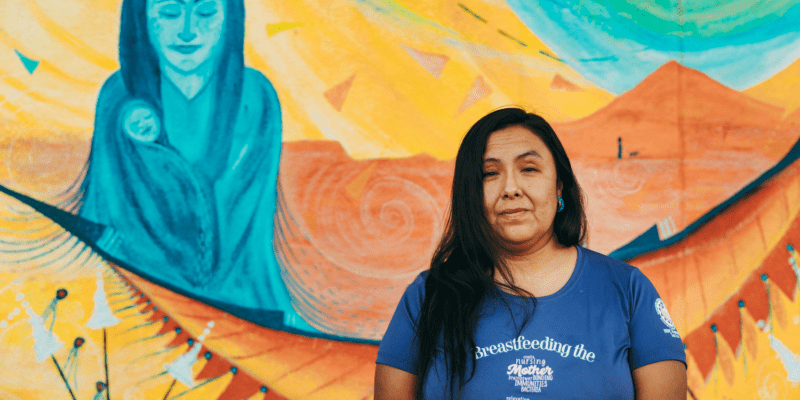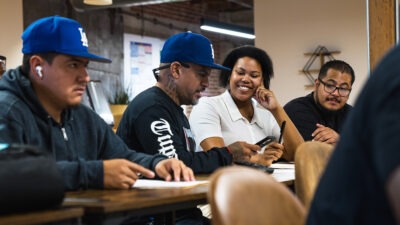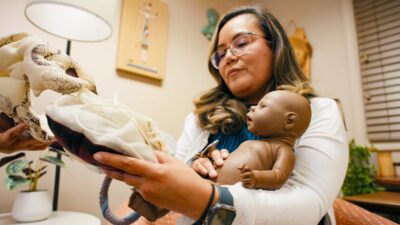This post is also available in: Español (Spanish) Kreyòl (Haitian Creole)
This story was originally published on the W.K. Kellogg Foundation website.
“I had every problem in the book when it came to breastfeeding. So I don’t know what I would have done without my lactation consultant and the support group.”
Erin Marshall recently gave birth to her second son. She also is the director of the New Mexico Baby-Friendly® Hospital Project.
“Even though I knew all the practices in theory, I still felt overwhelmed,” said Marshall.
There’s plenty of research showing that breastfeeding fuels strong health and bonding benefits for mothers and children. This, along with demand from expectant mothers, is inspiring many hospitals to pursue Baby-Friendly® Hospital designations. Baby-Friendly® Hospitals support breastfeeding, including encouraging skin-to-skin contact moments after birth and rooming-in services, as well as providing lactation consultants and immediate breastfeeding time.
“The difference is really incredible,” says Erin Marshall, director of the New Mexico Baby-Friendly® Hospital Project and a mother of two. “There is a blanket of support that surrounds you from the beginning, when doctors sit down with you to talk through important information, to even after you leave, as you participate in the breastfeeding support groups.”
Beyond ensuring that both mother and child are well supported and comfortable, baby-friendly practices are ultimately about the long-term health and well-being of families and communities. Every element of the program, particularly the core practice of breastfeeding, is deeply rooted in medical research and proven practices that show immediate and life-long benefits.
Recognizing the importance of these practices, the W.K. Kellogg Foundation partnered with the New Mexico Breastfeeding Task Force to launch the New Mexico Baby-Friendly® Hospital Project in 2012. The initiative helps hospitals navigate the rigorous journey of becoming a designated Baby Friendly® Hospital.
“Hospitals are really excited about the possibilities,” Marshall said. “They see the effect the initial changes are having on the mothers and they know that giving families the right start is going to make a big difference down the road.”








Comments